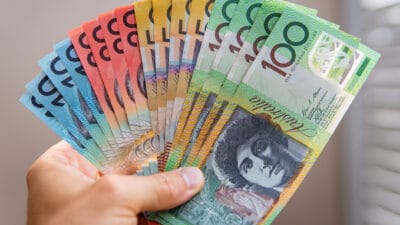The word investment gets bandied about these days for almost anything. It seems society has come to see any purchase that saves you time or effort can be classed as an 'investment'. Heck, I've been told buying a new car or an expensive pair is shoes is an 'investment'.
But I'm more a fan of the stricter 'traditional' definition of what qualifies as investing – something that returns cash to me as an owner.
That rules out a car – with depreciation, registration costs, fuel, maintenance and taxes, a car is certainly not putting cash into your pocket (unless you're a taxi/Uber driver). Neither are shoes, for that matter.
It also rules out your family home. Sure, a house is an asset that will usually go up in value over time – but so does a vintage record, bar of gold, piece of art or collectable toy. While you hold them, these assets are making you poorer, not richer.
Store of wealth and value? Maybe.
Investment? Not quite.
Think about the difference between your home and owning an investment property or shares. An investment property puts rental income in your pocket every week or month. Shares represent part ownership of a business. Good businesses are usually defined by their ability to generate cash for their owners (and lots of it).
Think about buying shares in Commonwealth Bank of Australia (ASX: CBA). Last financial year, CBA shares generated $4.86 of earnings per share for its owners. Of this $4.86 per share, $4.31 was paid out as a cash dividend to its owners – making Commonwealth Bank a reasonably sound investment.
But what about companies that don't pay dividends?
Well, most Australian shares do pay dividends, but if we look over at the US markets, we can see a good example of a different situation. Let's take two US companies – Tesla Inc. and Facebook Inc. I happen to own shares in both these companies, but one I consider an investment and one a speculative play.
Facebook is a company that doesn't pay a dividend and never has. Still, Facebook generated US$5.91 of earnings per share for its owners over the last twelve months – earnings which it will reinvest into its business on my behalf as an owner. I'm very comfortable with this as Facebook is a company that has consistently managed to get a return on its capital of over 20% (much better than I could investing it myself).
Tesla on the other hand is a fast-growing electric vehicle manufacturer that has delivered no dividends and an earnings loss of $3.85 per share over the last twelve months – losing me money as an owner. However, I recognise that this is a more speculative gamble of sorts and I hope that Tesla will become a profitable investment for me one day.
Foolish takeaway
Knowing the difference between a real investment and a speculative play is an important distinction in your financial matters. Having the vast majority of your wealth invested in assets that consistently return cash to your pocket is a well-trodden path to prosperity, so pick your shares with this in mind!








